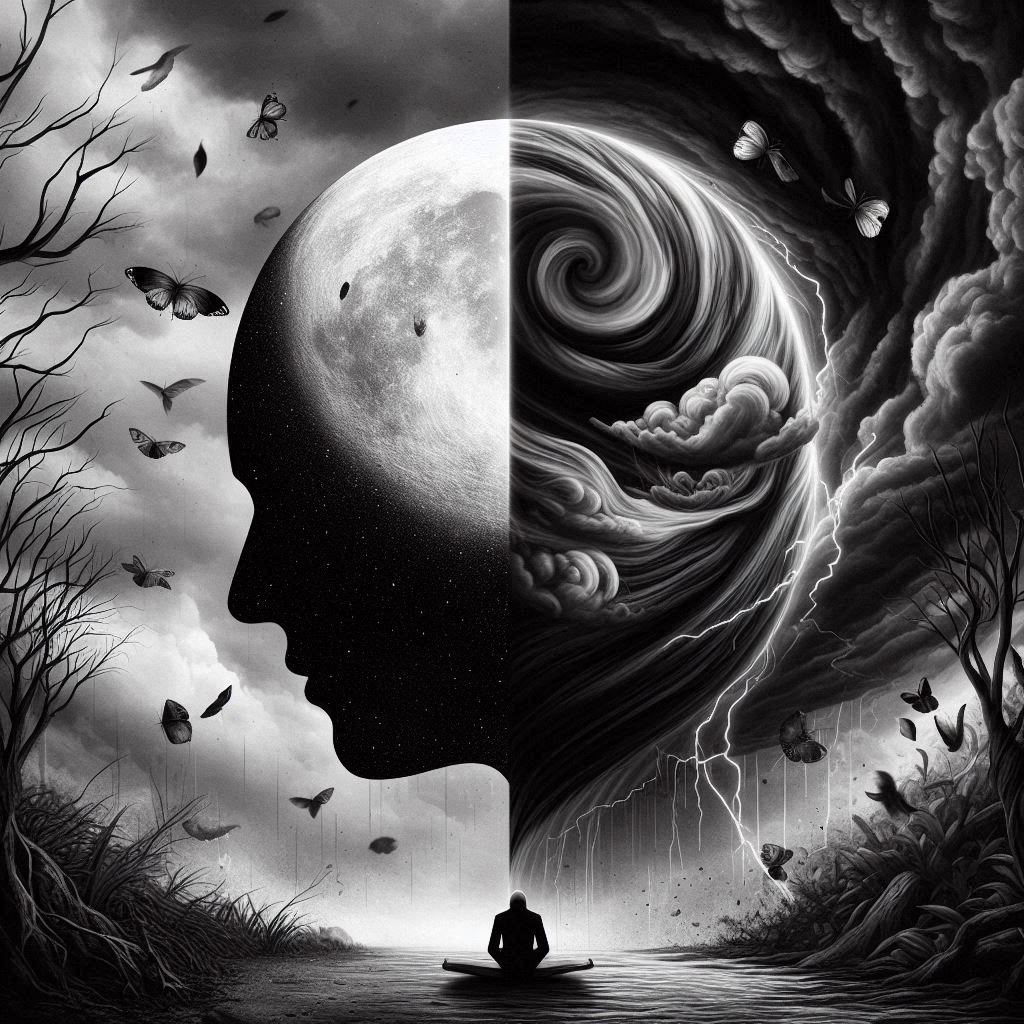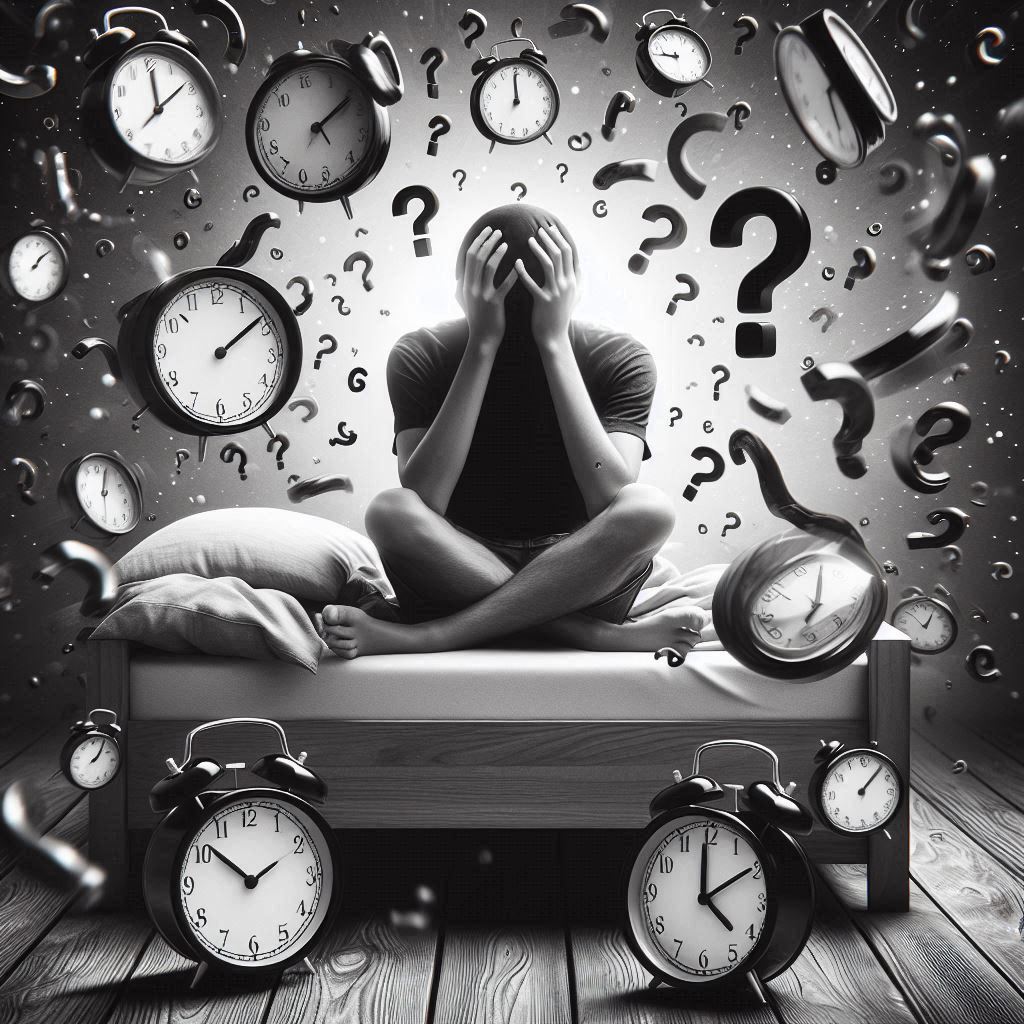Ever wondered why some of the funniest people seem to struggle the most with their own happiness? This is the sad clown paradox, a phenomenon where those who make us laugh are often battling their own inner demons. It’s a striking contrast and one that affects many, often leaving them feeling misunderstood and isolated.
Understanding the symptoms of this paradox is the first step toward addressing it. We’ll explore how these individuals can find balance and regain their joy. If you’ve ever felt this way or know someone who does, you’re not alone and there are steps you can take to improve your well-being. Keep reading to uncover practical solutions that can make a real difference.
What is the Sad Clown Paradox?
The sad clown paradox refers to the curious situation where people who appear the funniest and bring others the most joy are often hiding their own sadness or depression. Think about famous comedians like Robin Williams, who despite their cheerful public persona, struggled privately with emotional pain. This paradox raises questions about why those who make us laugh often cry the hardest behind closed doors.
Origins and History
The idea of the sad clown isn’t new. It dates back to the classical arts, where clowns and comedians were often depicted as tragic figures. In literature and theater, we see characters like Pagliacci, an opera about a clown who laughs on the outside but is heartbroken inside.
Psychologist Gordon Claridge first introduced the concept in modern psychology. He observed that many comedians and performers use humor as a defense mechanism to cope with their own distress. This paradox isn’t just an artistic trope; it’s a real psychological phenomenon that affects many.
Cultural Relevance
In today’s world, the sad clown paradox is more visible than ever. Social media allows us glimpses into celebrities’ lives, often exposing their struggles with mental health despite their outward appearances of happiness. The pressure to constantly be “on” and entertain can take a toll on mental well-being.
Comedy itself is a powerful tool for coping with stress and adversity. Many comedians use humor to process their own life experiences, turning pain into laughter. This is evident in various studies, which show that humor can be a double-edged sword: it offers relief to the person cracking jokes, but it can also mask their deeper emotional struggles.
Why Does It Happen?
Several factors contribute to this paradox:
- Personality Traits: Comedians and performers often have a heightened sensitivity to their surroundings, which can make them more prone to mood swings.
- Coping Mechanisms: Using humor as a shield is a common way to divert attention from inner turmoil.
- Social Expectations: There’s immense pressure to maintain a happy facade, especially in public roles, making it harder to be open about personal struggles.
Real-Life Examples
Several high-profile individuals exemplify the sad clown paradox. Robin Williams, renowned for his comedic genius, battled severe depression and addiction. Similarly, the British comedian Tony Hancock struggled with depression despite his successful career.
Understanding this paradox helps break the stigma around mental health, opening doors for more honest conversations about emotional well-being, especially among those who seem the happiest on the outside.
Symptoms of the Sad Clown Paradox
When someone suffers from the sad clown paradox, they often show a range of symptoms that affect their emotional, behavioral, and physical well-being. Understanding these symptoms can help identify and address this hidden struggle.
Emotional Symptoms
People suffering from the sad clown paradox often hide their true feelings behind a mask of humor. Despite making others laugh, they might experience:
- Sadness: Deep and persistent feelings of sadness, even when things seem fine on the surface.
- Despair: A sense of hopelessness that can feel overwhelming and hard to shake off.
- Emotional Exhaustion: Constantly trying to appear cheerful can drain their emotional energy, leaving them feeling spent.
These emotional symptoms are often exacerbated by the pressure to maintain a happy facade. It’s not uncommon for them to feel trapped in their role, which only intensifies their inner turmoil.
Behavioral Symptoms
Behavioral symptoms are a key aspect of the sad clown paradox. They act cheerful and joyful in public but feel the complete opposite in private. Look out for:
- Acting Happy in Public: They are the life of the party, always ready with a joke or a smile. This behavior can make it hard for others to see their struggle.
- Isolation: In private, they might withdraw from social interactions, avoiding friends and family.
- Substance Abuse: Some may turn to alcohol or drugs to cope with their feelings, further complicating their situation.
These conflicting behaviors can be very confusing for both the person experiencing them and those around them. The gap between their public persona and private reality creates a constant internal conflict.
Physical Symptoms
The emotional and behavioral impact of the sad clown paradox often leads to physical symptoms, which can be just as debilitating. Common physical signs include:
- Fatigue: Feeling constantly tired and lacking energy, even after a good night’s sleep.
- Sleep Disturbances: Having trouble falling asleep, staying asleep, or waking up too early.
- Appetite Changes: Either losing interest in food or eating more than usual as a way to comfort themselves.
- Headaches and Body Aches: Persistent physical pain without a clear medical cause, often linked to stress.
These physical symptoms can make daily life even more challenging, adding another layer of difficulty to an already tough situation. They serve as a reminder that mental health issues can have real, tangible effects on the body.
Understanding these symptoms can help in recognizing the sad clown paradox in yourself or others. If these signs resonate with you, know that it’s important to seek help and not to carry the burden alone.
Causes and Risk Factors
The sad clown paradox doesn’t just happen out of nowhere. Several factors contribute to why someone who makes others laugh is struggling on the inside. Understanding these causes and risk factors helps us support those affected and break the stigma surrounding mental health.
Psychological Causes
Psychological factors often play a big role in the sad clown paradox. Comedians and entertainers might have certain personality traits or mental health issues that make them more prone to emotional struggles.
- Personality Traits: Many performers are highly sensitive and empathetic, making them more attuned to others’ emotions but also more vulnerable to mood swings and depression.
- Defense Mechanisms: Humor is often used as a shield to protect oneself from emotional pain. Jokes and laughter can hide deeper issues, serving as a coping strategy to mask true feelings.
- Perfectionism: The desire to always be perfect and entertain others can lead to high levels of stress and feelings of inadequacy when they fall short.
These psychological causes can create a disconnect between the performer’s public persona and their private feelings, leading to a constant battle within.
Environmental Factors
External factors can also contribute to the sad clown paradox. The environments in which performers work and live can intensify their emotional struggles.
- Stressful Work Environments: Comedy and entertainment are high-pressure fields. The demand to be funny and engaging on command can be overwhelming, leading to burnout.
- Societal Expectations: Society often expects comedians to always be cheerful and funny. This pressure can make it difficult for them to express their true emotions and seek help.
- Isolation: The lifestyle of entertainers can be isolating. Long hours, travel, and time away from loved ones can lead to feelings of loneliness and detachment.
These environmental factors can amplify existing psychological issues, creating a perfect storm for emotional distress.
Biological Factors
Lastly, biological factors can play a significant role in the sad clown paradox. There might be genetic or physiological components that make some individuals more susceptible to emotional challenges.
- Genetic Predisposition: Research suggests that depression and anxiety can run in families. If someone has a family history of mental health issues, they might be more likely to experience similar struggles.
- Neurochemical Imbalances: Imbalances in brain chemicals like serotonin and dopamine, which regulate mood, can contribute to depression and anxiety.
- Chronic Illness: Physical health issues, such as chronic pain or illness, can impact mental health, making it harder to maintain an upbeat facade.
Understanding these biological factors can help in developing more effective treatment plans and support systems for those affected by the sad clown paradox.
By recognizing and addressing the various causes and risk factors, we can better support those who bring joy to our lives and help them find their own happiness.
Solutions and Coping Strategies
Dealing with the sad clown paradox can be tough, but there are practical strategies that can help. Finding the right solutions involves understanding different therapeutic approaches, practicing self-care, and building a strong support system. Let’s explore these methods.
Therapeutic Approaches
Therapy can be a game-changer for those experiencing the sad clown paradox. Different types of therapy help address underlying issues and provide tools for managing negative emotions.
- Cognitive-Behavioral Therapy (CBT): CBT is one of the most effective treatments for depression and anxiety. It helps you recognize and change negative thought patterns and behaviors. This type of therapy can be particularly useful for those who use humor to mask their emotions. By identifying triggers and learning new coping mechanisms, CBT helps build healthier emotional responses.
- Talk Therapy: Also known as psychotherapy, talk therapy allows individuals to express their thoughts and feelings in a safe, supportive environment. It can provide insights into why someone might feel the need to appear happy while feeling sad inside. Talking with a therapist can help uncover deep-seated issues and provide a path to healing.
- Group Therapy: Sometimes, sharing experiences with others who face similar struggles can be incredibly validating. Group therapy offers the benefit of peer support and helps reduce feelings of isolation. It’s comforting to know you’re not alone in your struggle.
Exploring these therapeutic options can make a significant difference in coping with the sad clown paradox. Professional guidance can lead to lasting emotional improvement.
Self-Care Practices
Self-care is essential for anyone, but it’s especially important for those dealing with the sad clown paradox. Simple routines can improve mental and emotional health, providing a strong foundation for recovery.
- Mindfulness: Practicing mindfulness involves focusing on the present moment and accepting it without judgment. Techniques like meditation, deep breathing, and mindful walking can reduce stress and improve overall well-being. Mindfulness helps individuals become more aware of their emotions, making it easier to address them constructively.
- Exercise: Physical activity is a powerful mood booster. Regular exercise releases endorphins, which are natural mood lifters. Whether it’s a brisk walk, a session at the gym, or a yoga class, staying active can help reduce anxiety and depression.
- Hobbies: Engaging in activities you love can bring joy and relaxation. Whether it’s painting, playing an instrument, or reading, hobbies provide an outlet for self-expression and can distract from negative thoughts.
Prioritizing self-care can lead to significant improvements in mood and energy levels. It’s about taking small, consistent steps to nurture your well-being.
Support Systems
A strong support system is crucial for managing the sad clown paradox. Having people to lean on can make the journey to emotional health much smoother.
- Friends and Family: Trusted friends and family members can provide essential emotional support. Don’t hesitate to reach out to those who care about you. Honest conversations with loved ones can reduce feelings of isolation and offer comfort.
- Support Groups: Joining a support group can be very beneficial. These groups often consist of individuals facing similar challenges, providing a sense of community and understanding. Support groups can be found both in-person and online, making them accessible to everyone.
- Professional Support: Sometimes, professional support is necessary. Therapists, counselors, and mental health professionals can offer guidance and treatment plans tailored to your needs. They provide a safe space to explore your emotions and develop strategies for coping.
Building and maintaining a support system takes effort, but it’s worth it. Having people who understand and support you can make a huge difference in overcoming the sad clown paradox.
Finding effective solutions and coping strategies is key to dealing with the sad clown paradox. Therapy, self-care, and support systems offer valuable tools for improving emotional health and finding true happiness.
Personal Stories and Testimonials
Hearing from others who have faced the sad clown paradox can shed light on this complex issue and offer hope to those struggling. Personal stories and testimonials provide authentic insights, showing that it’s possible to overcome emotional challenges and find happiness.
John’s Story
John is a comedian who has been making people laugh for over a decade. On stage, he’s known for his wit and energy. But behind the scenes, John battled depression.
“I always felt like I had to be the funny guy, no matter what. My friends and family expected it, and so did my audience. But the truth was, I was deeply unhappy. It felt like I was living a double life.”
With the support of his wife and a dedicated therapist, John started to address his feelings. Cognitive-behavioral therapy helped him understand his need to hide behind humor. He also took up running as a way to manage his stress.
“Running became my therapy. It gave me time to think and process my emotions. Slowly, I learned to balance my public persona with my private self. It wasn’t easy, but accepting that it’s okay to not always be funny was a huge step.”
Sarah’s Experience
Sarah is an actress who specializes in comedy. Despite her bubbly personality on screen, Sarah struggled with anxiety and felt isolated.
“People think that because you make others laugh, you must be happy all the time. But for me, it was like living behind a mask. I was terrified of showing my true self, fearing it would disappoint people.”
Sarah joined a support group for performers dealing with mental health issues. Sharing her story and hearing others’ experiences was a turning point.
“The support group was life-changing. It was comforting to know I wasn’t alone. We laughed, we cried, and most importantly, we supported each other. It gave me the courage to seek professional help and start my journey towards healing.”
Kevin’s Testimonial
Kevin, a stand-up comedian, found that humor was both his escape and his prison. Surprisingly, the breakthrough came when he started writing a blog about his struggles.
“Writing was my outlet. I could finally put my feelings into words. The blog not only helped me process my own emotions but also connected me with others who felt the same way. It created a community where we could be honest about our challenges.”
Kevin’s blog gained a following, and he received numerous messages from readers who related to his story. This interaction motivated him to seek therapy and focus on self-care.
“Therapy was a game-changer. It helped me understand that it’s okay to show vulnerability. Today, I still use humor, but I no longer use it as a shield. I’ve learned that being real with my audience makes my comedy even more impactful.”
Maria’s Journey
Maria, a comedy writer, felt immense pressure to hide her true feelings. The turning point came when she opened up to her colleagues.
“Admitting I was struggling was the hardest part. But once I did, I found that my colleagues were incredibly supportive. Many of them had faced similar issues. It was a relief to know I wasn’t the only one.”
Maria started practicing mindfulness and yoga, which helped her manage stress and anxiety.
“Mindfulness changed my life. It taught me to be present and accept my emotions without judgment. Yoga gave me a sense of peace and balance. These practices, combined with therapy, have been instrumental in my recovery.”
Common Threads
These personal stories highlight several common themes:
- Honesty: Opening up about struggles is often the first step to finding help.
- Support: Having a strong support system, whether through family, friends, or therapy groups, is crucial.
- Self-Care: Practices like exercise, mindfulness, and hobbies can significantly improve mental health.
- Professional Help: Therapy can provide the tools needed to cope with and understand the sad clown paradox.
By sharing these stories, we can see that while the journey might be challenging, it’s entirely possible to find balance and happiness. If you or someone you know is experiencing similar feelings, consider reaching out for help and exploring strategies that work for you.
When to Seek Professional Help
Understanding when it’s time to seek professional help is crucial for anyone experiencing the sad clown paradox. Recognizing the signs and acting early can make a significant difference in managing this condition. Here’s how to know when it’s time to reach out.
Persistent Sadness
Feeling sad once in a while is normal, but if you find yourself feeling down most of the time, it’s a red flag. Persistent sadness that doesn’t seem to go away, even when good things happen, is a signal that you might need help. It’s okay to admit that you’re not feeling happy and that you need support.
Losing Interest in Activities
Do you find that the things you used to love don’t excite you anymore? Losing interest in activities, hobbies, and even relationships can indicate deeper issues. If your passion for comedy or performing is fading and you no longer find joy in it, it’s time to talk to a professional.
Intense Feelings of Guilt or Worthlessness
Everyone makes mistakes, but if you’re constantly feeling guilty or worthless, it’s important to seek help. These feelings can be overwhelming and hard to shake off on your own. A therapist can help you understand these emotions and find ways to cope with them.
Changes in Sleep Patterns
Noticeable changes in your sleep habits, such as struggling to fall asleep, waking up in the middle of the night, or sleeping too much, can be signs of depression. Quality sleep is essential for mental health, and a professional can provide strategies to improve your sleep.
Physical Symptoms
Mental health issues can manifest physically. If you’re experiencing headaches, body aches, or unexplained fatigue, these could be linked to emotional strain. Ignoring these signs can lead to more severe health problems, so it’s important to address them.
Substance Abuse
Reaching for alcohol or drugs to cope with emotional pain is a clear sign that professional help is needed. Substance abuse might seem like a temporary escape, but it only adds to the problems in the long run. A therapist can help you find healthier ways to manage your emotions.
Withdrawal and Isolation
Are you avoiding friends, family, and social situations? Isolation can make feelings of sadness and depression worse. If you notice that you’re withdrawing from social interactions regularly, seeking professional help can provide the support you need to reconnect with others.
Inability to Function
When depression starts to interfere with your daily life, it’s crucial to get help. If you’re finding it hard to concentrate, complete tasks, or even get out of bed, these are serious signs of depression. Reaching out to a mental health professional can help you regain control over your life.
Suicidal Thoughts
If you’re having thoughts of self-harm or suicide, it’s critical to seek help immediately. These thoughts are serious and indicate a need for urgent support. Contact a mental health professional or crisis hotline right away. Remember, there’s always hope, and help is available.
Seeking professional help can feel daunting, but it’s a brave and important step towards healing. Don’t wait until things get worse. Addressing these signs early with the help of a professional can lead to better mental health and a happier life.
Conclusion
The sad clown paradox highlights the struggle of those who make us laugh while battling their own emotional pain. Recognizing emotional, behavioral, and physical symptoms is key.
Practical solutions include seeking therapy, practicing self-care, and building a support network. Cognitive-behavioral therapy, mindfulness, exercise, and connecting with loved ones are effective strategies.
Understand that you’re not alone. Taking small, actionable steps can significantly improve your mental health. Embrace your journey to find balance and lasting happiness.








